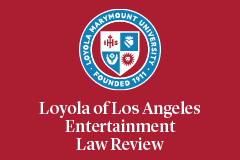Abstract
Cartoons and comics have been a part of American culture since this nation’s formation. Throughout that lengthy history, comics and cartoons have also been a subject of controversy, censorship, legislation, and litigation. They have been viewed as a threat to society and a cause of juvenile delinquency; they are scandalous, indecent, and obscene. The Comic Book Legal Defense Fund (“CBLDF”), a New York-based non-profit organization, provides legal defense for comic artists, collectors, distributors, and retailers who face civil and/or criminal penalties for the creation, sale, and ownership of comics, cartoons, graphic novels, and related works.
The Introduction to this article charts the history of the comic art form and, in particular, its history in the United States. This section offers a summary of the first efforts to restrict the content of comics via investigations and Congressional hearings fueled by the dubious psychology and social science theories of Dr. Frederic Wertham. These theories offer an example of the kind of misguided fears that currently augment attacks on the comic art form today. Finally, the Introduction explains the origin of the CBLDF due to the prosecution of a comic storeowner.
The second section of the article provides a detailed discussion of Mavrides v. Franchise Tax Board. In Mavrides, comic creator Paul Mavrides, co-author of the notorious underground comic The Fabulous Furry Freak Brothers, successfully battled the California Franchise Tax Board over the taxation of comics. As a result, independent comic artists were free of undue tax burdens that otherwise would have limited their ability to continue to create comics with edgy political and social commentary.
The third section of the article focuses on the principal type of case the CBLDF has worked on for the past two decades—fighting the U.S. Justice Department and local state prosecutors’ efforts to censor the content of comics, usually by alleging that the content is obscene or indecent. In particular, the section focuses on the cases of Gordon Lee, a Georgia-based distributor prosecuted for allegedly distributing an obscene graphic novel to a minor, and Christopher Handley, an adult prosecuted under the PROTECT Act for the mere possession of allegedly obscene Manga comics.
The final section of the article argues that the current American jurisprudence imprisons creators, distributors, and collectors for the ideas they express in graphic formats. It argues that the Supreme Court was wrong when it decided that obscene materials are outside of the protection of the First Amendment. Unfortunately, this decision has had a tremendous impact on the rights of comic creators, distributors, and collectors. Furthermore, the rationale for criminalizing explicit sexual material, to protect children from the alleged harm exposure to these materials causes, is flawed. The absence of any definitive proof of that harm leads to the recommendation that at the very least, penalties for the creation, distribution, and ownership of comics and cartoons with sexual content must be de-criminalized.
Recommended Citation
Marc H. Greenberg,
Comics, Courts & Controversy: A Case Study of the Comic Book Legal Defense Fund,
32 Loy. L.A. Ent. L. Rev. 121
(2012).
Available at: https://digitalcommons.lmu.edu/elr/vol32/iss2/1


